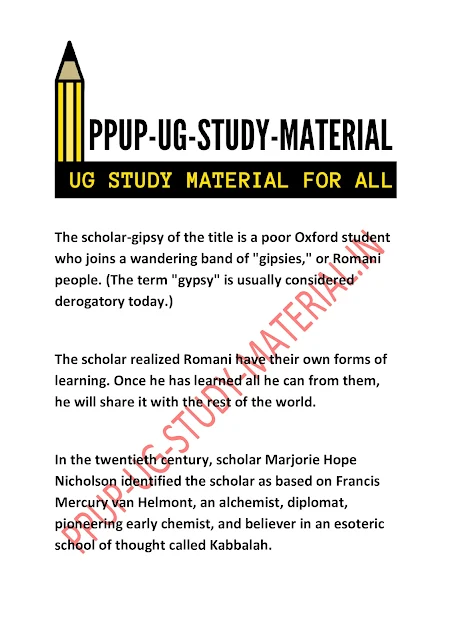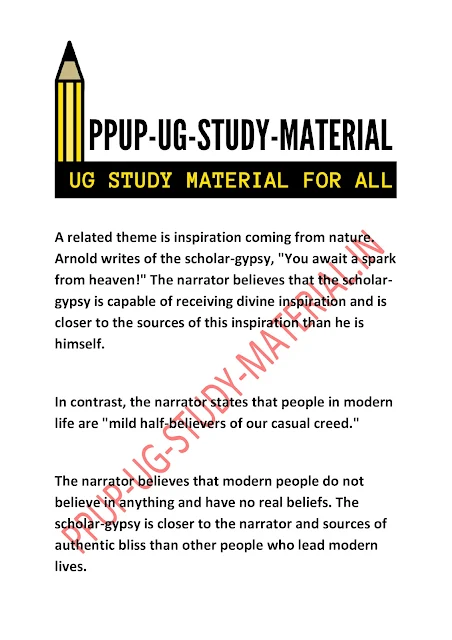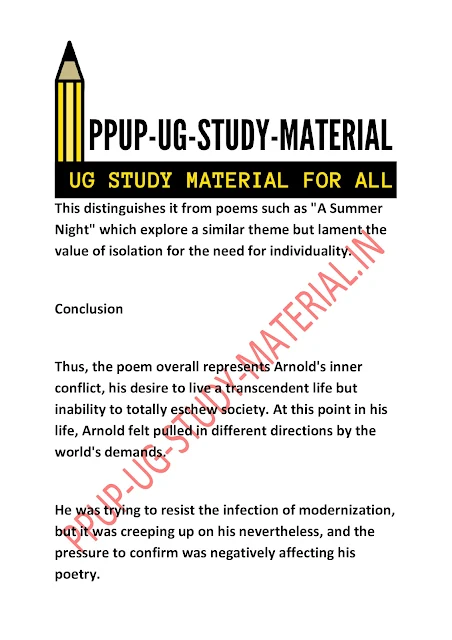Write a note on the scholar gypsy pdf free download - ppup part 1 english honours notes and study material pdf
[ Write a note on the scholar gypsy pdf free download - ppup part 1 english honours notes and study material pdf ]
In this BlogPost we'll cover These Topics - ppup part 1 english honours notes and study material pdf, PPUP part 1 english honours ug study material download, PPUP part 1 english honours ug study material free, PPUP part 1 english honours ug study material online, PPUP part 1 english honours ug study material pdf, PPUP part 1 english honours ug study material quora, patliputra university guess paper 2024 pdf, Short note on the scholar gypsy, Write a note on the scholar gypsy, The Scholar gypsy line by line explanation PDF, Note on the scholar gypsy pdf, The Scholar gypsy theme, The Scholar gypsy poem line explanation, The Scholar Gypsy PDF, The Scholar gypsy as a pastoral elegy, Write a note on the scholar gypsy pdf free download, Write a note on the scholar gypsy pdf, Short note on the scholar gypsy pdf, Write a note on the scholar gypsy pdf free, The Scholar gypsy line by line explanation PDF, The scholar gypsy poem pdf, Note on the scholar gypsy pdf line by line, The Scholar gypsy full poem
Introduction to Write a note on the scholar gypsy pdf free download
About of the Author of The Scholar Gypsy
About the Characters of The Scholar Gypsy | ppup part 1 english honours notes and study material pdf
Questions. Critical Analysis of Poem The Scholar Gypsy | ppup part 1 english honours notes and study material pdf
Questions. Summary of the Poem The Scholar Gypsy | ppup part 1 english honours notes and study material pdf
Conclusion for Write a note on the scholar gypsy pdf free download
I hope You got what you were looking for ..reading this post Write a note on the scholar gypsy pdf free download - ppup part 1 english honours notes and study material pdf ... and if you got any query ..you can comment below so we can provide you further assistance.























































![Questions. Summary of the Poem The Scholar Gypsy | ppup part 1 english honours notes and study material pdf The next seven stanzas continue the narrative of the Scholar-Gipsy’s quest for a divine knowledge that could reconcile human and divine, matter and spirit. However, the Scholar-Gipsy is both present and absent in the passage. The poem recalls various sightings of its subject from the time he left Oxford to the poem’s present. He appears on the banks of “the stripling Thames [River] at Bablock-hithe,” with peasant children at play among the Cumnor Hills, amid the gypsy camps of Bagley Wood, and finally upon a “causeway chill” in the dead of winter.](https://blogger.googleusercontent.com/img/b/R29vZ2xl/AVvXsEie9AA1P_6z8FbDq7N2Amf6uswXZg6xzuvC5F1QRuyTnGpmlQtqFcY-nY-0ytvvjKEi9z7nQm6wOH5esY1utZFwOqb_Xc9IJdP4d4axc2x4le-cQu7nHUaKiEeG_HHBlzsL4YiSL42utAQq4GjLno_9Fup1k7TLTKctjwfb5ebHNG_YmHImJx0cpFRR/w452-h640-rw/Write%20a%20note%20on%20the%20scholar%20gypsy%20pdf%20free%20download-53.jpg)

No comments